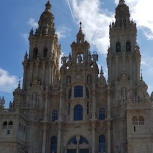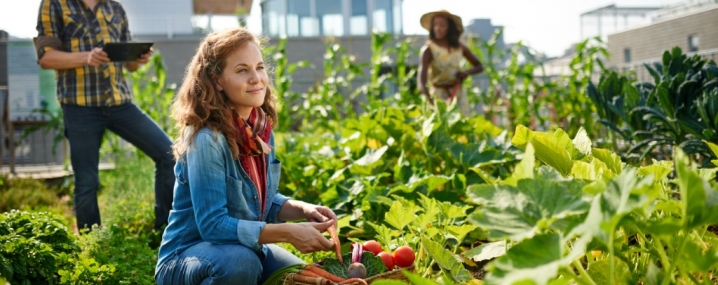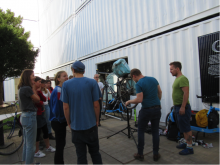
Santiago De Compostela
The municipality of Santiago de Compostela, which encompasses the old town, the “Ensanche” (urban expansion area), the surrounding neighbourhoods and a total of 29 rural parishes, has an area of 223 square km, with an official population of 95,800 inhabitants. However, the actual population is thought to be over 126,000, of which 30,000 are students attending the University of Santiago de Compostela.
For the 2014–2020 multiannual financial framework, Santiago de Compostela City is leading another URBACT III project in relation to the thematic objective of environmental protection and resource efficiency named Tropa Verde, rewarding recycling! Tropa Verde is a platform to encourage environmentally responsible behaviour, that empowers citizens to reuse and recycle. Combining web platform and low cost campaigns, it is considered as a "civic movement fully committed to sustainability and circular economy". Citizens get vouchers and exchange them for rewards from the City Council and local retailers. It connects places where disposing waste (green points, civic and social centres, etc.) with local businesses providing gifts or discounts.
As the Lead Partner of the Tropa Verde, the city is taking the lead and piloting innovations on the subject of recycling, public awareness and participation. As other cities that were involved in the WEED Action Planning Network, Santiago holds a particular interest in the general increase in women’s participation in local development, regardless of their age, socio-economic background and origin. Self-employment and enterprise can be important vectors of progress in that direction and the WEED project will help showing what has been done in that field in other EU cities.
In relation to URBACT II Programme, Santiago de Compostela has leaded another Transfer Network in the SUITE during the period 2007-2013. The main objectives of the SUITE network was to cooperate among partners to optimise a sustainable and affordable supply of housing and to assure social cohesion through social mix and adequate housing. These issues bring up a major social challenge, inequality in access to housing. This challenge facing the public authorities is part of a wider problem of urban and social exclusion. Thus, this project looked for innovative housing policies that guarantee not only affordable but also good-quality and environmentally sustainable housing. This promotes the social inclusion of the populations and the urban integration of neighbourhoods and housing in cities.
Santiago de Compostela City has a wide experience in the implementation of european projects because the City Council has participated in several european programmes like HORIZON 2020, URBACT II, INTERREG, CEF Telecom and ESF.
SOME RELATED NETWORKS
Suite
Tropa Verde
News
News from our networks – 17 May 2021
Article
Tropa Verde in Opole Agglomeration (Transfer Story)
News
News from our networks – 19 March 2021
Article
2020, what we’ll be looking out for
Article







